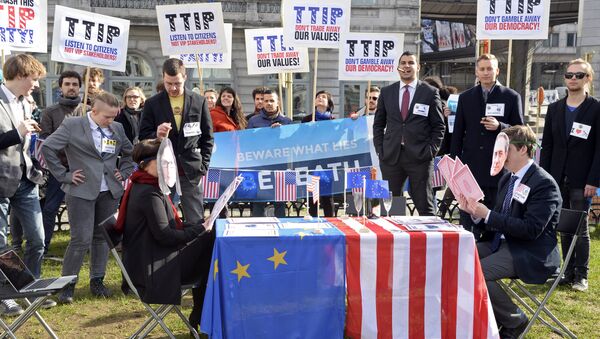The revelations show that – under the Transatlantic Trade and Investment Partnership (TTIP) agreement – "regulatory cooperation" between the US and the EU would mean that the European Commission would have to allow Washington a say in future trade legislation.
In December 2015, after months of campaigning, European lawmakers won a battle to have access to previously restricted documents associated with the controversial Transatlantic Trade and Investment Partnership (TTIP) negotiations.
Until then, only a limited number of Members of the European Parliament (MEPs) – believed to be around 30 – had been able to access TTIP consolidated documents classified as EU-restricted, due to their sensitivity for the EU and the US – the so called "consolidated texts" reflecting the draft compromises between the EU and the US.
US Influence
Critics have slammed the secrecy of the negotiations which they say have been dominated by lobbyists on behalf of multinational companies keen to see the TTIP loosen state controls over industry regulations and standards.
#TTIP: Big business and US to have major say in EU trade deals, leak reveals @Independent https://t.co/ivbGgNjVLR pic.twitter.com/AxLRn4kWQW
— CEO (@corporateeurope) March 18, 2016
The leaked documents – according to Corporate Europe Observatory – show that, after the TTIP agreement has been put in place, all EU policy decisions over trade and regulatory issues will have to be run past Washington. Kenneth Haar, researcher for CEO, told The Independent:
"EU and US determination to put big business at the heart of decision-making is a direct threat to democratic principles. This document shows how TTIP’s regulatory cooperation will facilitate big business influence – and US influence – on lawmaking before a proposal is even presented to parliaments."



